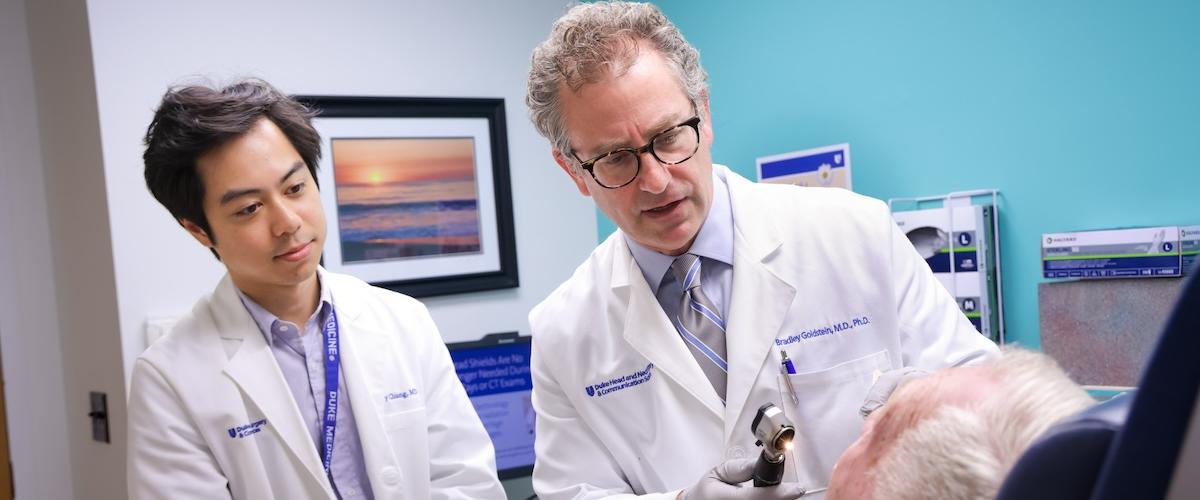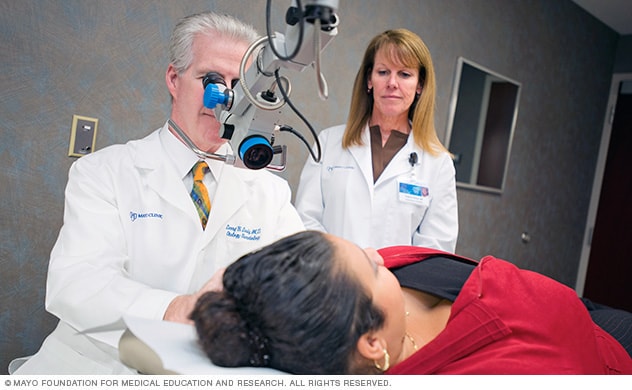Discovering the Field of Otolaryngology: What to Anticipate When You Speak With an ENT
Otolaryngology, generally referred to as ENT, encompasses the diagnosis and treatment of throat, nose, and ear problems. For those experiencing associated concerns, seeking advice from an ENT professional can offer clearness and alleviation. Recognizing what to expect throughout such examinations is vital for efficient communication and care. This introduction will certainly outline crucial facets of the ENT experience, including typical reasons for check outs and the processes associated with diagnosis and therapy.

Recognizing Otolaryngology: An Introduction
Otolaryngology, commonly referred to as ENT (Throat, nose, and ear) medicine, is a customized branch of medication that concentrates on the diagnosis and therapy of problems influencing these critical locations of the body. This field includes a large range of conditions, including those associated to hearing, balance, breathing feature, and speech. Otolaryngologists are educated to handle both medical and clinical therapies, utilizing sophisticated strategies and modern technologies. Their knowledge expands past traditional conditions, dealing with concerns such as allergies, sinus infections, and hearing loss. Furthermore, they play a vital function in the administration of head and neck cancers cells, supplying complete care tailored to private patient requirements. Overall, otolaryngology continues to be important for keeping health and wellness and lifestyle in afflicted people.
Common Reasons to See an ENT Professional
Numerous individuals look for the competence of an ENT professional for a selection of reasons, reflecting the varied nature of conditions that affect the nose, throat, and ear. Usual issues consist of persistent sinus problems, which commonly causes consistent nasal blockage and face pain. Allergic reactions and their associated symptoms, such as itching and sneezing, likewise trigger sees to these professionals (Voice). Hearing loss, whether progressive or sudden, is an additional substantial reason for appointment. Furthermore, people may look for evaluation for throat conditions, including consistent hoarseness or ingesting difficulties. Rest apnea, identified by cut off breathing throughout sleep, is often attended to by ENT experts also. Each of these problems highlights the value of specialized care in managing intricate ENT-related health concerns
Getting ready for Your ENT Appointment
When planning for an ENT visit, it is important to collect pertinent information and consider any specific issues. People need to compile an in-depth medical history, including previous ear, nose, or throat issues, surgical procedures, and present medications. Recording signs and symptoms-- such as period, frequency, and seriousness-- can offer valuable insights for the ENT specialist. In addition, individuals need to prepare a list of questions they want to ask, making sure that all problems are dealt with throughout the browse through. Bringing along any relevant medical documents or test results can further aid the ENT in comprehending the individual's condition. Finally, patients must verify their consultation details, including date, location, and time, to reduce any final complication. Proper preparation can improve the efficiency of the assessment and cause better results.
What to Anticipate During the Examination
As the examination starts, the patient can anticipate to participate in a detailed conversation with the ENT expert regarding their signs and symptoms and clinical history. The expert will certainly ask about the period, regularity, and severity of signs such as hearing loss, nasal congestion, or aching throat. In addition, the client's previous medical conditions, medications, and any kind of pertinent family background will be evaluated, helping the specialist in forming a complete understanding of the patient's wellness. The ENT might additionally ask concerning way of life elements, such as exposure to irritants or irritants. This open dialogue develops a foundation for the appointment, making certain that the person's worries are resolved and establishing the phase for any necessary examinations or referrals for treatment.
Diagnostic Examinations and Procedures in Otolaryngology
A series of analysis examinations and procedures are crucial in otolaryngology to precisely examine and identify problems influencing the nose, ear, and throat. Common examinations include audiometry, which measures hearing function, and tympanometry, assessing center ear stress. Nasal endoscopy enables visualization of the nasal passages and sinuses, while laryngoscopy examines the throat and singing cords. Imaging methods, such as CT scans and MRIs, give in-depth views of head and neck structures. Allergic reaction testing may also be performed to identify triggers for sinus or respiratory issues. These analysis devices make it possible for ENT professionals to create a thorough understanding of patients' problems, making certain tailored and effective monitoring plans. Proper medical diagnosis is vital for successful treatment results in otolaryngology.
Therapy Alternatives Supplied by ENT Specialists
ENT experts offer a variety of treatment options tailored to attend to particular conditions influencing the ear, nose, and throat. These treatments range from traditional methods, such as medication and lifestyle alterations, to even more intrusive treatments. For circumstances, allergies may be handled with antihistamines or immunotherapy, while persistent sinus problems could require nasal corticosteroids or sinus surgical treatment. For hearing loss, ENT specialists often recommend listening device or medical treatments like cochlear implants. In situations of throat disorders, alternatives can consist of speech therapy or surgeries to remove blockages. Furthermore, they might give advice for taking care of rest apnea, including using CPAP tools or surgical interventions. In general, the goal is to enhance people' lifestyle through customized care and effective therapy techniques.
When to Seek Follow-Up Care With an ENT
When to look for follow-up care with an ENT expert is essential for managing continuous symptoms or issues related to throat, nose, and ear problems, recognizing. People ought to consider setting up a follow-up consultation if signs and symptoms persist despite initial treatment, such as chronic ear discomfort, nasal blockage, or throat discomfort. Modifications in hearing, equilibrium issues, or unusual nasal discharge may also require more examination. Furthermore, if a patient experiences negative effects from prescribed drugs or has actually undergone a surgical treatment, follow-up care is essential to keep an eye on recuperation and address any problems. Prompt examinations can assure reliable administration of problems, protect against possible problems, and provide assurance regarding one's health and wellness. Seeking follow-up care promotes positive wellness management in otolaryngology.
Frequently Asked Inquiries

What Credentials Should I Search for in an ENT Specialist?
When looking for an ENT expert, one need to search for board qualification, relevant experience, and solid person testimonials. Additionally, reliable interaction skills and a thoughtful method can considerably boost the overall therapy experience.
How Do I Choose the Right ENT for My Requirements?
Choosing the appropriate ENT professional involves examining their credentials, experience, and patient evaluations (Voice). It is important to consider their communication design and technique to treatment, ensuring they line up with the individual's specific health demands and choices
Exist Any Risks Connected With ENT Procedures?
The dangers linked with ENT treatments might consist of infection, bleeding, anesthetic difficulties, and prospective damages to bordering frameworks. Clients need to discuss these risks with their medical professional to understand specific concerns and warranty educated choices.
Just How Can I Handle Anxiety Prior To My ENT Visit?
To handle stress and anxiety prior to a visit, people can exercise deep breathing workouts, picture favorable outcomes, prepare questions ahead of time, find and seek support from friends or family members, cultivating a sense of peace of mind and peace.
What Should I Do if I Experience Side Results From Treatment?
The individual should immediately report them to their medical care supplier if side impacts from treatment take place. Changes to treatment or added treatments may be essential to ensure security and performance in handling their problem - Otorrinolaringologia. As the appointment begins, the person can expect to engage in a complete conversation with the ENT specialist concerning their signs and medical history. These analysis devices enable ENT specialists to create a detailed understanding of patients' conditions, guaranteeing customized and effective monitoring strategies. ENT experts use a variety of therapy options customized to attend to details problems hearing aid in spanish influencing the nose, emergency tonsillectomy nhs throat, and ear. When seeking an ENT expert, one need to look for board certification, pertinent experience, and strong person reviews. Choosing the best ENT professional includes assessing their credentials, experience, and person reviews